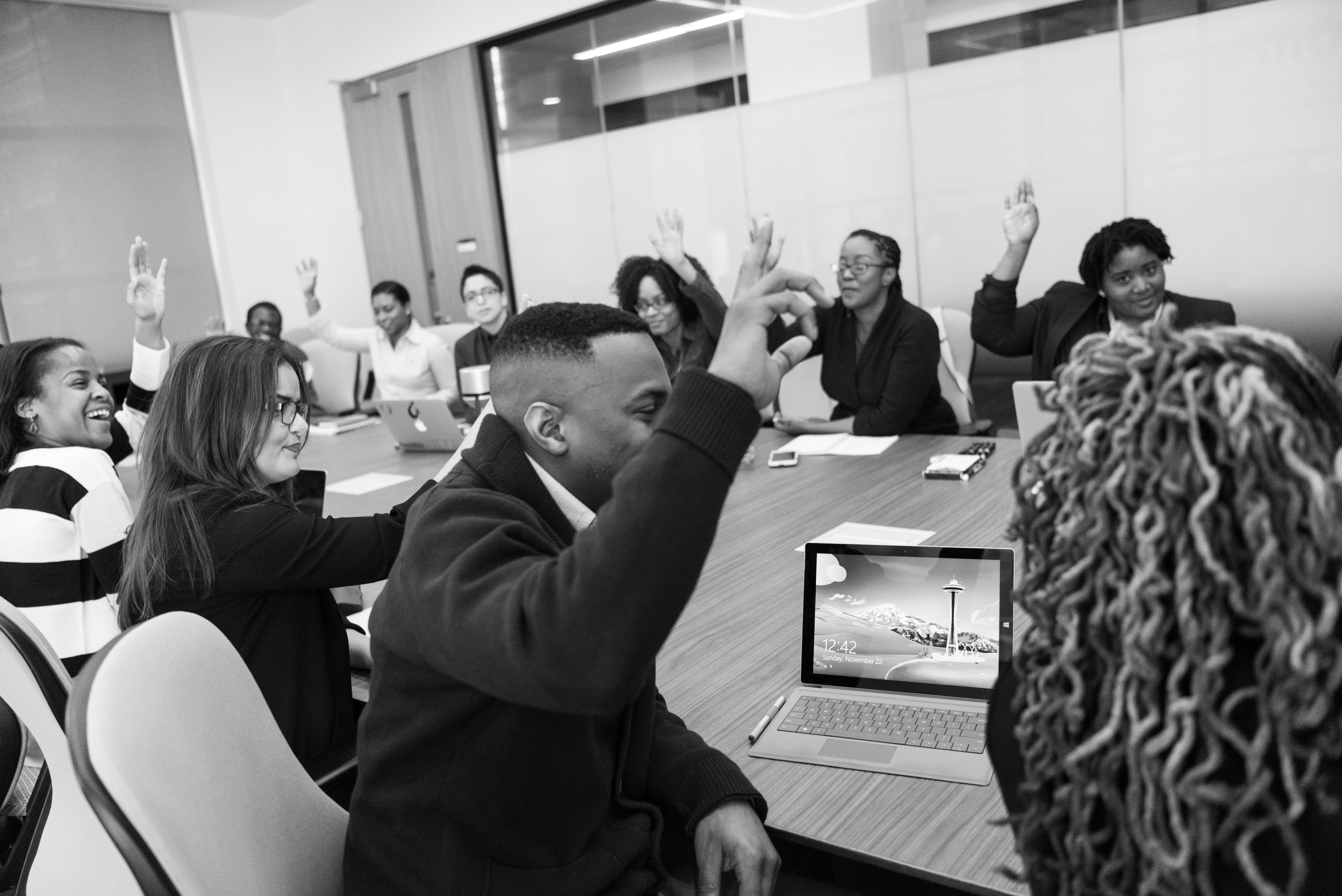News
What we’ve learned from the UK’s top finance professionals


Over the last year, we’ve sat down to speak with some of the leading finance professionals in the UK. Our …A Penny For Your Thoughts series focusses on the latest trends and issues facing the sector today. The aim was to take a deeper dive to provide unrivalled insight into the experiences and journeys these leaders have taken.
Reflecting on their careers and things they’ve learned, these professionals share with us the changes they’ve seen over the years in both the finance and third sectors. They give their advice to young professionals entering the sectors, and suggest what to consider when looking to a career in finance, and to drive meaningful change.
Career paths aren’t linear
There is a common misconception around our working lives that the journey from A to B is linear. However, it is abundantly clear that in today’s world, with improved access to education, training, and development, our options aren’t limited.
Mark Wildig, Finance Director at the Department for Health and Social Care (DHSC) recalls his ‘unconventional’ career journey. “I’ve been through lots of different industries, all of which have shaped the role and position I am in now.” Having moved through global financial services giants such as KPMG and PwC, Mark took a detour to Australia before opting to “make a real contribution and change” to the UK’s healthcare system at the DHSC.
Overlapping within your chosen field, or indeed across other sectors, can offer very transferable skills useful for any role. Maham Masood, Head of Financial Strategy at HM Land Registry, explains that the confidence, skills, and technical abilities he developed at the Ministry of Justice (MoJ) equipped him to move into a completely different department. “I found that working for different organisations was both very exciting and a great opportunity to continue my journey of learning.” The notion that continuous learning and development from entry-level to senior management is never-ending is one that all our finance leaders agreed upon.
At the early stages of our careers, it isn’t uncommon to feel uncertain about the starting line. Rebekah Makinde, Counter Fraud Lead at the Department for Digital, Culture, Media, and Sport (DCMS) didn’t know what she wanted to do, and didn’t consider finance until she was accepted onto the Government’s Finance Fast Stream after having completed a law undergraduate degree. Similarly, Bharti Hindocha, Project Manager of ERP Replacement at the NHS, earned her degree in biochemistry and decided to go into accounting later. “Something I’ve noticed is that you have to adapt and learn new skills, otherwise you’ll get left behind,” she says.
Get your qualifications
The consensus is to learn the basics of accounting and get your qualifications as soon as the opportunity arises. According to Bharti Hindocha, without those qualifications, you will always be an underdog. With them, she says, “you’ll acquire a set of transferable skills which will serve you for the duration of your entire career.”
Theresa Cairns, Senior Reporting Accountant at the Government Property Agency (GPA) echoes Bharti and encourages individuals starting out in finance to study as soon as possible. “Getting your financial and accounting qualifications gives you more confidence, more assertiveness, and a higher salary later down the line.”
Competition, Mark Wildig says, particularly as a student, is incredibly high. It’s true that there is never any harm in getting as much experience as you can through volunteering, part-time roles, social clubs, and charities. “These things help to put more strings to your bow.” In light of this, however, Rebekah Makinde stresses that it’s important to give yourself enough forgiveness when a mistake is made or if you fail an exam. “Once you’re in industry, you soon build the confidence and competence. Don’t be afraid to make mistakes.”
Drive change
Many of our leaders say there has been promising progress in the finance sector. Having spent the last four decades in finance, Bharti Hindocha is reassured to see more women and ethnic minorities working in senior levels. But more needs to be done.
There is an array of things finance departments can do to drive further change when it comes to equality, diversity and inclusion (EDI). According to Maureen Cole-Burns, Director of Finance and Resources at Fight for Sight, the influx of diversity and inclusion (D&I) policies have led to many consultancies now offering EDI assistance.
Morenike Ajayi, Founder of Career Nuggets contends that the first thing finance departments should do is respect each employee’s values and beliefs. Of course, businesses will have their core values, but she says the next step is creating a safe space where people can be themselves and share their values with the business, too.
Many charities and organisations have already taken proactive steps to reduce potential barriers to achieving change. Mark Wildig says the HR Department at his previous company, Comic Relief, ran unconscious bias training which demonstrated to him that we all have some form of pre-empted bias about nearly everything. This acknowledgement of the issue is the first step to eliminating the problem. The next step is encouraging others to follow suit.
However, he advises that managers should keep in mind that teams don’t necessarily have to get on, but they should be able to do the job together. In the same strain, Patrick says leaders regardless of background have a responsibility to support other people. The bottom line is, the more people that are included in the workplace, the better it is for the economy.
These insights are only the tip of the iceberg. To read more into these finance leaders’ experiences and perspectives, visit our …A Penny For Your Thoughts page here.